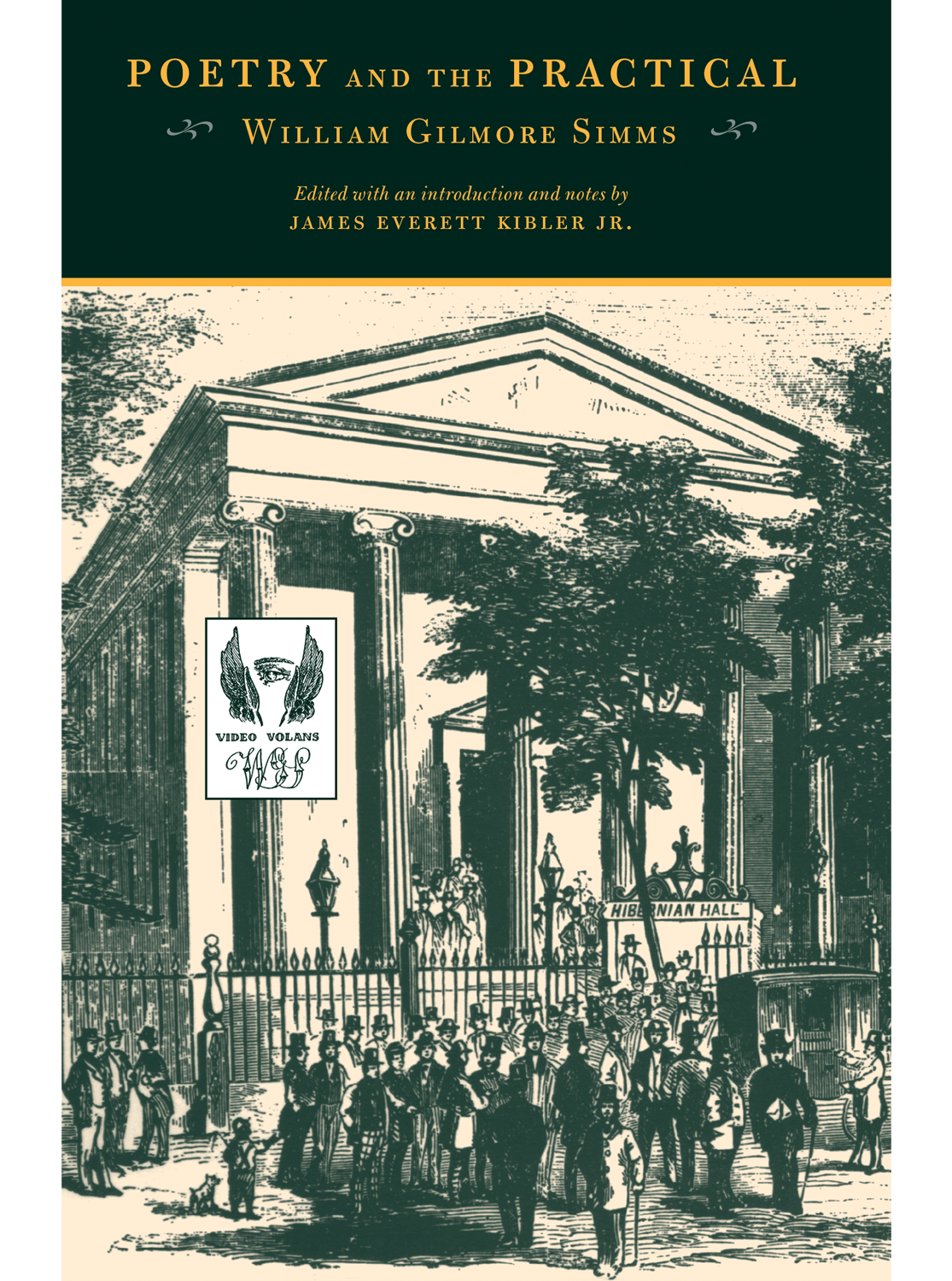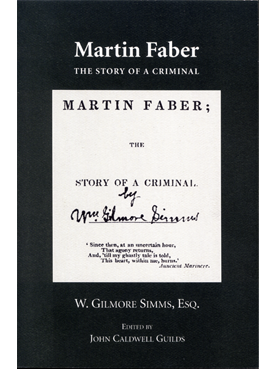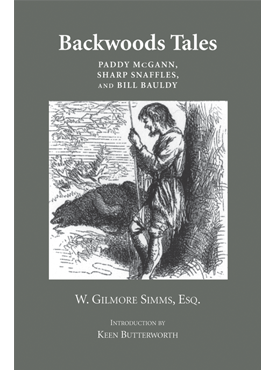Delivered as a three-part lecture series in 1854 at the famous Hibernian Society Hall in Charleston, South Carolina, Simms’s spirited defense of poetry stands in the nobel line of poetic credos from poets such as Sir Philip Sidney and Percy Bysshe Shelley. It is the only full-length work of its kind in American literature, and it has never before been published.
Seventh in the University of Arkansas Press’s Simms Series, Poetry and the Practical is a clear, forceful rebuttal of arguments that would relegate poetry to the margins of life. It proclaims the high calling of poets as spokesmen and romantic visionaries, underscoring their mission to reveal truth and passion, mind and heart and to transcend the limiting bounds of the empirical. In proving poetry’s utility and worth, Simms uses all the tools of persuasion open to him: his wide reading, his considerable knowledge of the history of culture and civilizations, his understanding of the values of place and tradition, and, above all, an oratorical eloquence, which allows his words to leave the page in a rush of inspiration.
These lectures, which still retain their identity as scripts prepared and punctuated for performance, provide profound insight into Simms the poet and into the effects of industrialization, the southern sensibility, and the influence of European thought on southern literature at a critical point in that literature’s development.
“These spirited, never-before-published lectures delivered in 1854 are admirably presented in this volume, which is both scholarly and a model of sensible editorial practice. Simms forcefully supported his position that poets have a high calling and that industrialization was creating a widening gap between the poet and the triumphant materialists. He argued that ‘the poet stood centrally in society as its best friend and guide’ and that human kind required ‘the constant communion of high thoughts and redeeming sentiments; to keep his meaner [nature], in just subjection to his nobler nature.’ In his intelligent introduction longtime Simms scholar Kibler . . . points out that Simms clearly shows his ‘quintessentially Romantic
vision’ by the use of reason, observation, imagination, craft, prophecy, and inspiration. Kibler brilliantly links the lectures with other great defenses of poetry, specifically, Sir Philip Sidney’s The Defence of Poesie (1595) and Shelley’s Defence of Poetry (1840). He discusses the influence of Coleridge and Wordsworth on Simms’s poetry, compares his work to Poe’s, and finds in the first lecture some truths about poets akin to those expressed by Faulkner in his 1950 Nobel speech.”
—R. F. Cayton, Choice
“James Kibler’s elegant edition of William Gilmore Simm’s Poetry and the Practical reveals an aspect of Simms that scholars have too often ignored, namely his abiding dedication to and vision of the writer’s art. In these pages, we encounter an engaging Simms who celebrates the role of imagination, which he calls ‘the soul of art,’ who reflects on the specific genius of the poet, and who proclaims his own allegiance to art’s unique ability to capture the timeless truths of the human condition. Thanks to Kibler, students, scholars, and general readers will now have ready access to a new and rich dimension of Simms’ literary imagination—and of the southern literary tradition.”
—Elizabeth Fox-Genovese
“All thanks to James Kibler for rescuing William Gilmore Simms’s gorgeous bombardment of Romantic sensibility! If Poe was the South’s great literary analyst, Simms was its great literary orator. The language here is as heady as an ancient port wine.”
—Fred Chappell
The Simms Series
The University of Arkansas Press edition of the Selected Fiction of William Gilmore Simms has as its aim to publish the major novels and short fiction in reliable texts, together with scholarly introductions, annotations, and other matter useful to scholars, critics, and teachers of Simms’s work. Though not full-dress editions in the strictest sense, the volumes of the Arkansas Simms follow the conventions of scholarly editing by reprinting the last edition revised by Simms during his lifetime. Orthography, capitalization, and word division follow nineteenth-century practices, with no effort to modernize spelling or punctuation. Earlier volumes in the series have included both an introduction by Professor John C. Guilds, now the general editor emeritus, and a historical note and afterword by the editor of that particular volume. In the recent volumes the introduction, historical note, and afterword will be combined into a single introduction prepared by the volume editor.




